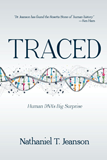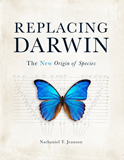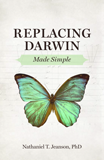The End of Reasonable Darwinism
Takeaways from Richard Dawkins, The Genetic Book of the Dead.
Richard Dawkins has released a new book, The Genetic Book of the Dead. Of course, it is evolutionary to its very core, and much of it is stuff that has already been said and rebutted by creationists, though there are some unique and interesting ideas, like the idea that organisms carry a record of the world their ancestors experienced in their DNA, morphology, and behavior. This article, however, will not review the book; it has a different point. The point is that Dawkins’ book is quite possibly his last. And he represents one of the last of a dying breed. He represents the end of reasonable Darwinism.
That may sound like an odd statement coming from a creationist, but hear me out. Darwinism and neo-Darwinism have always appealed heavily to autonomous human reason, apart from God. They recognized certain biological realities and assumed (incorrectly) that God was not involved in biology. Therefore, they concluded that the evolution of all life-forms, including humans, must have occurred, and it was their job to figure out how. If the absence, or at least disinterestedness, of any deity is assumed, then these are all understandable thoughts. The last generation of Darwinists were interested in facts, and though misguided, many of them were interested in truth, at least in some areas. Until roughly the 1990s, many evolutionists would openly and publicly debate creationists. Many, like Michael Ruse and Ernst Mayr (both deceased), familiarized themselves with creationists at least well enough to be able to repeat their arguments somewhat accurately.
In a sense, these men were the reasonable Darwinists. They believed that a truth existed, and they wanted to find it. This is a commendable exercise. The problem arose from them founding their ideas not in Scripture but in materialistic assumptions.
For all Dawkins’ faults, he believes that biology is real, with real constraints.
The generation behind these men has not bothered to familiarize themselves with creationist arguments. This is likely due to their loss of commitment to truth. For all Dawkins’ faults, he believes that biology is real, with real constraints. Dawkins is not a postmodernist. For him, truth exists—it is not conditional upon the experience of the individual. He is not alone in this view. Jerry Coyne, who wrote Why Evolution Is True as a scathing attack on creationists, recently had a blog published then unpublished at the Freedom From Religion Foundation (FFRF), where he served as an honorary board member along with Dawkins. In that article, Coyne argued for the biological definition of sex, i.e., male and female. The FFRF took it down after pressure from trans activists, prompting Dawkins, Coyne, and some others to resign from the honorary board.1
By contrast, Neil deGrasse Tyson (who incidentally is not a biologist) has embraced the idea of transgenderism and the gender spectrum.2 Tyson is about a generation behind Coyne and Dawkins. He has embraced postmodernism, whereas Dawkins and Coyne have not. The postmodernist perspective is a purely religious one, making FFRF’s defense of it rather ironic. In the postmodern view, there is no singular truth—on any issue. All that matters is the experience of the individual, which is extrapolated to the collective. Coyne and Dawkins reject this on at least some level. For them, the experience of the individual is subordinate to the existence of a capital “T” Truth.3 We would strongly agree with them here, though we differ about the source of that truth.
In a sense, this may explain why most evolutionists do not want to debate creationists anymore. The neo-Darwinists of Dawkins’ era and before believed in the existence of a single truth, and they sought to find it. They were misled, not by their desire for truth but by their materialism. Materialism forced them to believe the only source of truth was the matter of the universe, and if they studied it closely enough, it would reveal that truth. Most of their younger colleagues, with a few exceptions like evolutionary biologist Colin Wright, share neither their materialism nor their desire for truth. Instead, the younger generation desires to serve the consensus. And the humanities are driving consensus, not the sciences.
Of course, the rise of the postmodern faiths was enabled almost entirely by the New Atheist movement, of which Dawkins and Coyne were prominent members. They spent decades attacking Christianity in the West, undermining its very foundations in an attempt to demonstrate that the naturalism they believed was true was superior. But nature abhors a vacuum, and man, at his core, is fundamentally religious. We were created to fellowship with God, and as such, we crave something bigger than ourselves. Every society, until very recent times, has embraced at least the trappings of organized religion specifically for this reason, no matter how much the “elites” of the society may have rejected it. To his credit, Dawkins appears to have realized his error. He now calls himself a cultural Christian,4 effectively ceding that the naturalism to which he clings did not and cannot create a society he wishes to live in.
By undermining the predominant religion in the West, Dawkins and his fellow New Atheists opened the door for the various postmodern faiths, like critical theory, queer theory, and their various denominations. It also opened the door for Islam, something Dawkins has criticized strongly.5 But once the door is open, it is difficult to close. History has used men like Dawkins and Coyne and is now discarding them. And that is sad.
By undermining the predominant religion in the West, Dawkins and his fellow New Atheists opened the door for the various postmodern faiths, like critical theory, queer theory, and their various denominations.
Both Coyne and Dawkins are good observational scientists. They’ve done excellent work in the field of biology—Coyne in speciation and Dawkins in sexual selection and fitness. Both men’s works have been helpful to me personally, and I have cited them both in my own writings. Again, all this may sound very strange coming from a creationist, but the issue I, and other creationists, have with Coyne and Dawkins has never been about facts: it’s about how we interpret those facts. The difference is philosophical, not factual. This is why Coyne and Dawkins can defend the existence of two sexes and have creationists agreeing with them. The existence of two sexes is a biological fact. Both sides have always agreed on that. The younger generation, steeped in queer theory, now wants to jettison facts entirely. Coyne and Dawkins, because they believe in facts, won’t stand for that. This creates a rather strange alliance of the old guard of evolutionary biologists and their mortal enemies, the creationists, against the heirs to the kingdom: the postmodernists.
The “old guard,” however, is limited by age. They no longer hold the keys to the kingdom of academia. The recruits they trained to succeed them have turned on them and embraced religious beliefs more cultlike than anything evangelical Christianity ever put forward. Reasonable Darwinism is slowly limping to the grave, its demise leading to the end of civilized discussion between opposing views on evolution. Dawkins’ book may represent its last gasp.
I would like to appeal to the old guard here specifically. You were tricked. You were used to eliminate Christianity in the West so that the gnostic postmodern faiths could come out of hiding and pick up the pieces. Look at the world around you. Does it look like an atheist world governed by reason or a postmodern one governed by experience?
I am sure the old guard genuinely believed what they were saying was true. Did atheism produce what was hoped? Is the world a better place now? But if atheism were true, why did it not lead to a better world? Is it possible that atheism is false? And if it is possible, perhaps it will cause them to reevaluate Christianity. We’re seeing what postmodern faiths do around the world.
If you’re merely a cultural Christian, I am not asking you to become a true Christian because it works best for society. I am asking you to consider the truth of what the Christian faith teaches. You are a sinner. You probably already know that, but if you don’t, ask yourself if you have ever told a lie, taken God’s name in vain, or taken something that did not belong to you. If you answered yes to any of those questions, you’re a sinner. If not, you’re a liar, which makes you a sinner. So am I. So is everyone else. And sin separates you from God, who is holy. He cannot tolerate the presence of sin. The wages of our sin is death in a place called hell for eternity. But because God loved us, he sent his son, Jesus Christ, to die on the cross and take our sin debt upon himself. Jesus then rose from the dead just as he said he would, proving he was God in the flesh. Those who believe on him will live with him in heaven for eternity. That is the fundamental message of Christianity. Notice I said nothing about evolution. Salvation in Christ is not conditioned upon one’s belief concerning the days of creation or the age of the earth or universe, but we argue that it is nonetheless important. I know this would mean accepting you’ve been publicly wrong for a long time. But it would be far worse to realize this when it’s too late.
Footnotes
- Jarryd Jäger, “Prominent Atheists Ditch Freedom From Religion Foundation as Org Doubles Down on Censorship, ‘Extreme Gender Activism,’” Western Standard, December 29, 2024, https://www.westernstandard.news/news/prominent-atheists-ditch-freedom-from-religion-foundation-as-org-doubles-down-on-censorship-extreme-gender-activism/60792.
- Hannah Grossman, “Neil deGrasse Tyson Explodes During Debate About Trans Women Competing in Women Sports,” Fox News, September 27, 2023, https://www.foxnews.com/media/neil-degrasse-tyson-explodes-during-debate-transwomen-competing-womens-sports.
- Richard Dawkins, “Science: The Gold Standard of Truth,” Skeptical Inquirer 45, no. 2 (March/April 2021): https://skepticalinquirer.org/2021/03/science-the-gold-standard-of-truth/.
- Joe Brown, “Richard Dawkins Laments Decline of ‘Cultural Christianity’ in UK Amid Surging Islam,” The Christian Post, April 2, 2024, https://www.christianpost.com/news/richard-dawkins-laments-decline-of-cultural-christianity.html
- Benjamin Fearnow, “Atheist Richard Dawkins Compares Islam to Cancer, Ridicules Pro-Muslim Liberal Critics,” Newsweek, March 27, 2019, https://www.newsweek.com/richard-dawkins-islam-cancer-sharia-law-muslim-brunei-homosexuality-1377226.
Recommended Resources

Answers in Genesis is an apologetics ministry, dedicated to helping Christians defend their faith and proclaim the good news of Jesus Christ.
- Customer Service 800.778.3390
- Available Monday–Friday | 9 AM–5 PM ET
- © 2026 Answers in Genesis







